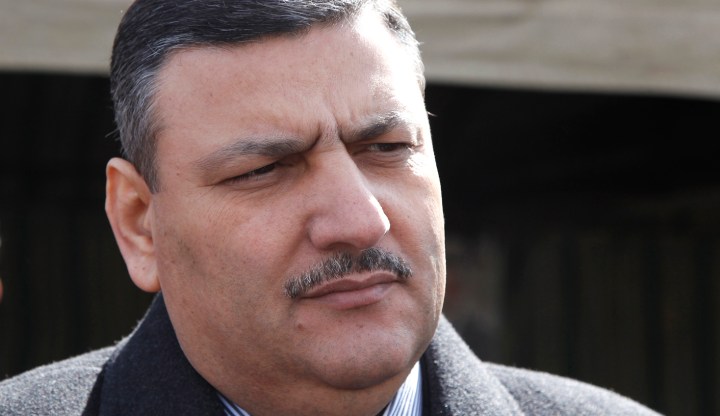World
Syria: chaos, more chaos and a regime on the edge

Bombs, defections and belated efforts by the United Nations to rap Syria over the knuckles. KHADIJA PATEL makes sense of what exactly has been happening in Syria.
After five Syrian ambassadors defected to the opposition last month, 6 August brought a slew of defections from senior officials in Syrian President Bashar Al-Assad’s government. Most notably, Prime Minister Riyad Hijab fled to Jordan with his family, saying afterwards that all Syrian ministers sought to leave the country but have a “gun pointed to their head”.
Shortly before reports of Hijab’s defection emerged however, Syrian television reported he had actually been sacked from his post. The jury is still out on whether Hijab jumped ship or if he was indeed dismissed. His defection is, however, a blow against Al-Assad’s reform efforts—however cosmetic they may have been.
Hijab was a former agriculture minister appointed prime minister in June 2011, following a parliamentary election. And while opponents dismissed the elections as a sham, Al-Assad pointed to these reforms as proof of his willingness to submit to a more democratic order. Hijab became the public face of Al-Assad’s reforms, and his defection is an embarrassment to the president’s continued assertions of an active reform process.
According to his spokesperson, Muhammad al-Etri, Hijab was forced into the position of Prime Minister. “He was given two options: to either take the office of Prime Minister or be killed. He had a third option in mind: to plan his own defection in order to direct a blow to the regime from within and today he is declaring his defection and I believe he is the highest ranking official in Syria [to do so]. … it is a one of a kind [defection] and it will have grave repercussions on the regime and significant implications after the departure of the regime and [for] the success of the revolution,” he told Al-Jazeera Monday.
Al-Etri said Hijab’s defection had been planned for “more than two months”, and was executed in collaboration with the Free Syrian Army—the armed wing of the Syrian opposition. But even as Hijab scurried over the border to Jordan on Sunday night, purportedly en route to Qatar, it remains to be seen whether his defection was actually borne of the lofty ideals his spokesperson has attributed to it. From a distance, Hijab’s defection—the most prominent so far—smacks of a heady opportunism.
Why did it take him so long to defect? How was it possible for him to leave the country if indeed he was under such close watch as he claims? These questions may well have reasonable answers, but for now all the defection by Hijab and the reported defection of a number of other ministers proves is that the FSA are more adept at organising defections of government personnel than they have been at fighting al-Assad’s forces.
Syria is in the midst of a fully militarized conflict that has resisted attempts at international mediation. Syrian rebels said three Iranian captives were killed on Monday during an air attack in Damascus province by government forces, and threatened to kill their remaining captives unless the army stopped its attack. “They were killed when the aircraft attacked, one of the houses they were in collapsed over their heads,” the group’s spokesman, Moutassam al-Ahmad, told Reuters. “We will kill the rest if the army does not stop its assault. They have one hour.”
And just hours before Hijab’s dismissal/defection was announced, Syrian state television announced that a bomb had gone off on the third floor of the Syrian state TV and radio building in Damascus, wounding three people. Syrian Information Minister Omran al-Zoubi claimed he knew who was behind the explosion, saying, “They have shown their cowardice with this attack.”
“We know which states politically and financially support these attacks. It can be Qatar, Saudi Arabia, Turkey or Mossad, it does not matter,” said al-Zoubi.
In recent weeks more information has emerged as to who is helping the rebel forces, how they are helping and the depth of the assistance provided. A spokeswoman for the opposition Syrian National Council told Agence France-Presse that Qatar and Saudi Arabia were providing arms to Syria’s rebels. Speaking to France’s Europe 1 radio, Bassma Kodmani said, “There are certain countries that are providing light and conventional weapons,” she said. Asked which countries, Kodmani replied: “It is Qatar, Saudi Arabia, it is maybe a little bit Libya with what it has left over from its own battle.”
Kodmani said a military solution to the conflict is potentially catastrophic, yet for now the armed conflict appears doomed to carry on. “For the next few months the conflict will continue largely as it has,” Michael Stephens, researcher at the Royal United Services Institute for Defence and Security Studies in Qatar, said.
“The diplomatic deadlock will continue until the military conflict provides some clarity about who will win,” Stephens said. “Assad will lose, but until he’s brought to his knees the Russians will not back down.”
Last week, the United Nations General Assembly voted overwhelmingly in favour of a resolution that criticised the Security Council for its failure to take decisive action on Syria. The resolution severely criticised the Syrian government for the killings and other atrocities that have come to shape the 17-month-old uprising, but was non-binding and matters little to what happens on the ground. The pressure the General Assembly resolution may place on the Security Council—particularly Russia and China—may prove telling.
“I don’t think the General Assembly vote can change anything on the ground,” Stephens said, adding, “What remains to be seen is whether this will now change the disagreements in the Security Council.
“This resolution indicates to Russia and China that the world is angered, but it is after all a symbolic vote,” he said.
The resolution was passed with an overwhelming 133 votes in its favour with 12-votes against and a 33 abstentions. South Africa this time around voted in favour of the resolution, leading some to question if its policy on Syria is really that fickle. Just two weeks ago South Africa abstained from a vote in the Security Council claiming the draft resolution was not balanced enough. This time however, Stephens said South Africa successfully applied for the draft resolution to drop two key provisions in the original draft: a demand that Assad resign, and a call for other nations to place sanctions on Syria.
“South Africa got the resolution watered down,” Stephens said. “The final draft was less about regime change and hinted more to a negotiated settlement.”
In the midst of great bluster at the General Assembly, which saw Syria’s UN ambassador deliver a terse speech against the world powers conniving against his government and Russia’s refusal to have the international community intervene in Syria, South Africa’s explanation of its stance actually made the most sense. The South African ambassador to the UN, Baso Sanqo, said his delegation deplored the violence and loss of life in Syria, “which is fast spiralling out of control”.
Crucially, he reminded the Assembly that the Red Cross had recently classified the situation in Syria as a “civil war”. ”All sides had obligations under international law. There could be no military solution, and, ultimately, the parties in Syria would have to negotiate a settlement. The only question was whether they did so now or after a protracted and bloody civil war,” he said.
Sanqo said South Africa had been disappointed that the Security Council had been unable to apply pressure on both sides to seek a peaceful political solution but continued to express reservations on the final text of the resolution that was eventually adopted. He said he supported the Assembly’s decision to adopt a text, but the current one should have been more balanced.
“Indeed, an unbalanced text could be viewed as the Assembly’s expressed support for one side over the other,” he said. “The resolution should call strongly on the opposition to pursue a political solution and cease all violence. Despite its misgivings on some aspects of the text, South Africa believed it was necessary for the United Nations to take action.”
Stephens however believes that the text of the resolution should not be seen as a tacit endorsement for regime change in Syria. “It does not necessarily mean the world is clamouring for regime change in Syria,” he said. “We live in a post-Iraq War world,” he pointed out. “The Saudis (who sponsored the resolution) certainly don’t want to be seen to be advocating regime change when they have such huge problems of their own.”
It is then also significant that Saudi Arabia, which is already arming the rebels, sponsored this resolution. It is already a part of the conflict, so why would it seek action in the General Assembly when it has already bypassed international law to further its own agenda in Syria?
Stephens believes that despite their entrenched efforts in the military, the Saudis and Qataris still want to be seen at least to be courting the approval of the international community. “Saudi Arabia and Qatar like to have an international consensus behind them,” he said. But how exactly Syria progresses from here remains to be seen. DM
Read more:
- What does Qatar want in Syria? on Open Democracy;
- Breaking the Arab News on Foreign Policy.
Photo: Defected/fired Prime Minister Riyad Hijab (Reuters)



















 Become an Insider
Become an Insider